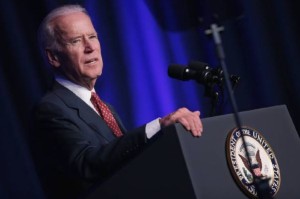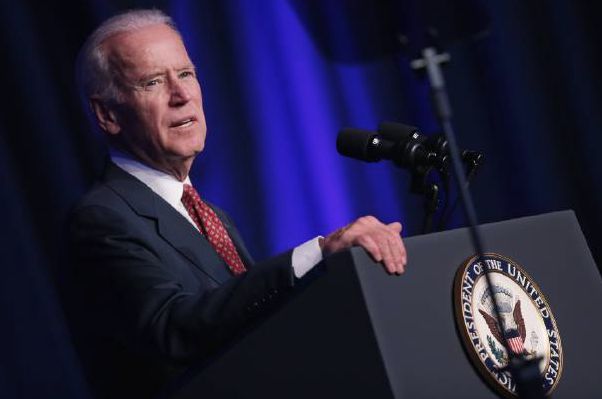 After the criticism of the Iraqi army voiced by U.S Defense Secretary Ash Carter, Vice President Joe Biden called Prime Minister Haider Al-Abadi to calm down the uproar and reassure officials in Baghdad of Washington’s continuous support.
After the criticism of the Iraqi army voiced by U.S Defense Secretary Ash Carter, Vice President Joe Biden called Prime Minister Haider Al-Abadi to calm down the uproar and reassure officials in Baghdad of Washington’s continuous support.
Carter accused Iraqi forces of having “showed no will to fight” against the militants of the Islamic State in Ramadi even though they “vastly outnumbered” the extremist group.
Iraqi officials were angered by his comments aired by CNN on Sunday but Biden called a day later to recognize “the enormous sacrifice and bravery of Iraqi forces,” according to a statement from the White House.
He appreciated the ongoing preparations to push IS out of Ramadi and renewed Washington’s support of “efforts to liberate the territory from ISIL.” Biden explained that the “lack of will” was in reference to “intense wave of suicide bombings… which followed 18 months of fierce ISF attrition against ISIL in Ramadi, coupled with what the Iraqi government has acknowledged were breakdowns in military command, planning, and reinforcement.”
Biden’s telephone call was meant to put an end to the critical responses that came from Baghdad shortly after Carter’s comments.
Saad al-Hadithi, a spokesman for the Prime Minister, stressed that Carter’s comments were judgmental and based on “incorrect information” as he blamed the loss of Ramadi to mismanagement and poor planning by some senior military commanders.
Iran added its voice to the melee with Gen. Qassim Soleimani, head of the elite Quds forces in Iran’s Revolutionary Guard, criticizing the role of U.S forces in the fight against IS as he alleged that they didn’t do a “damn thing” to stop Ramadi from falling, according to daily Iranian newspaper Javan.
He claimed that only Iran “as well as nations who are next to Iran or supported by Iran” are active in fighting IS.
